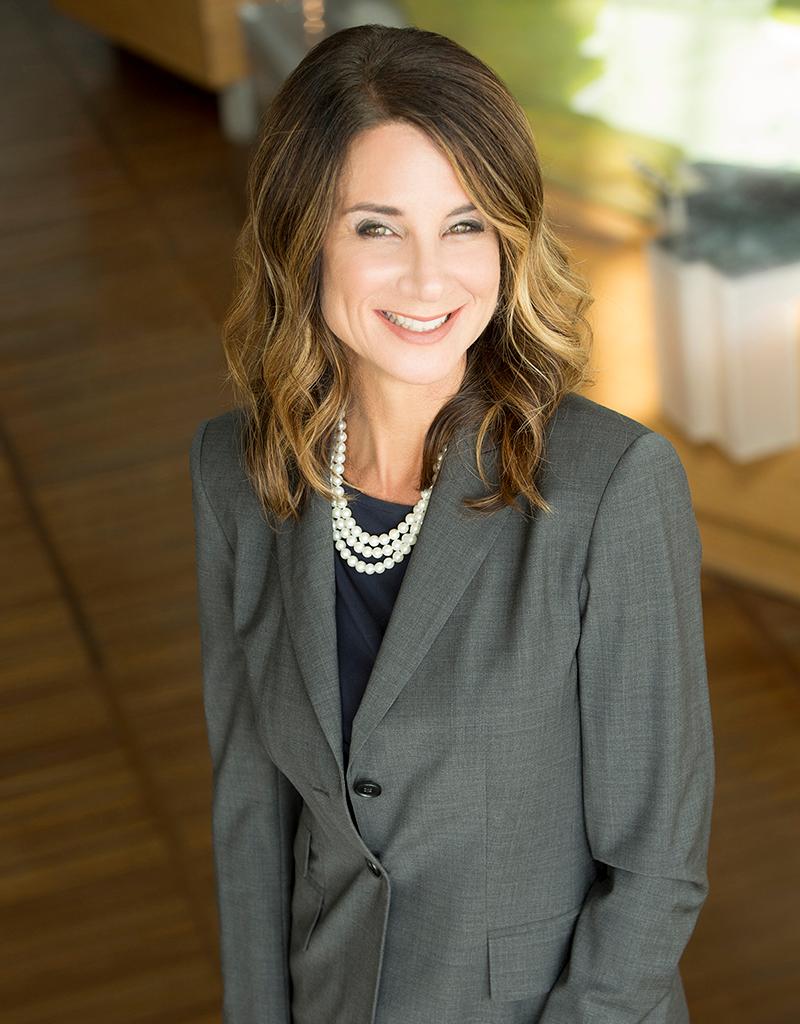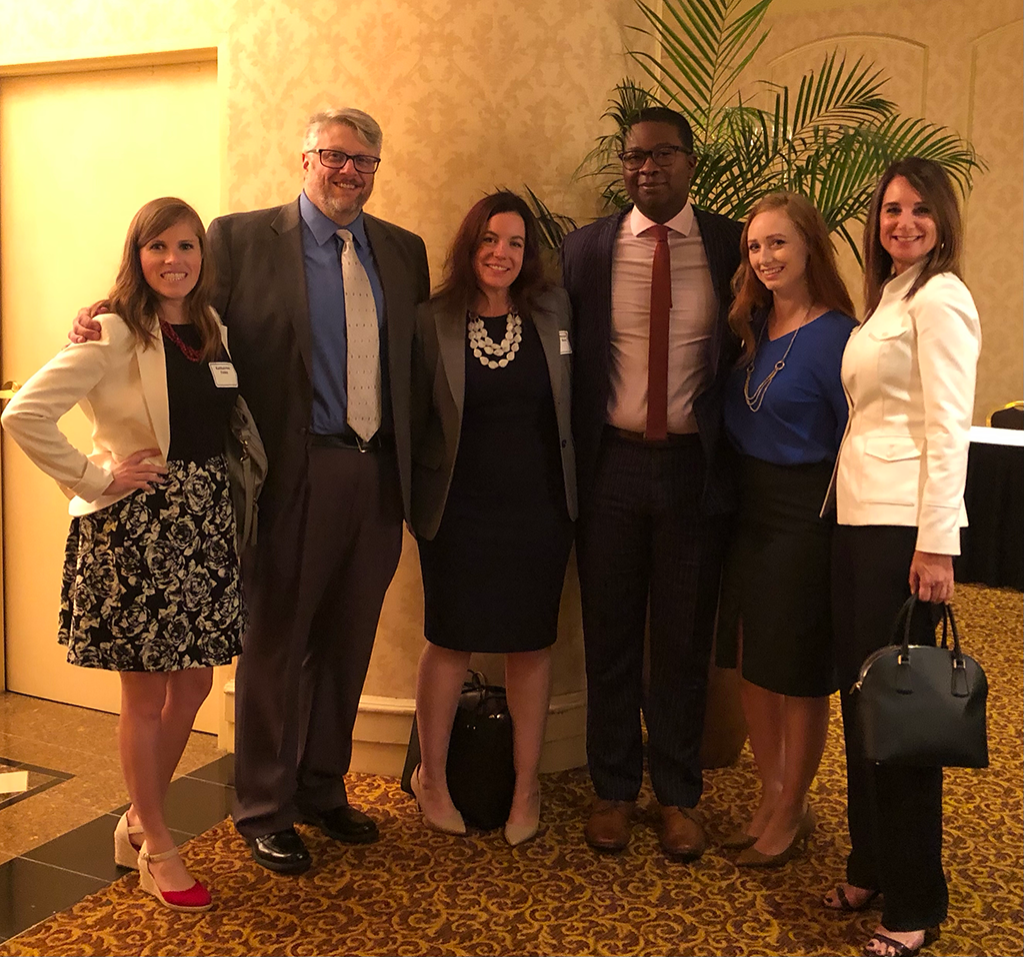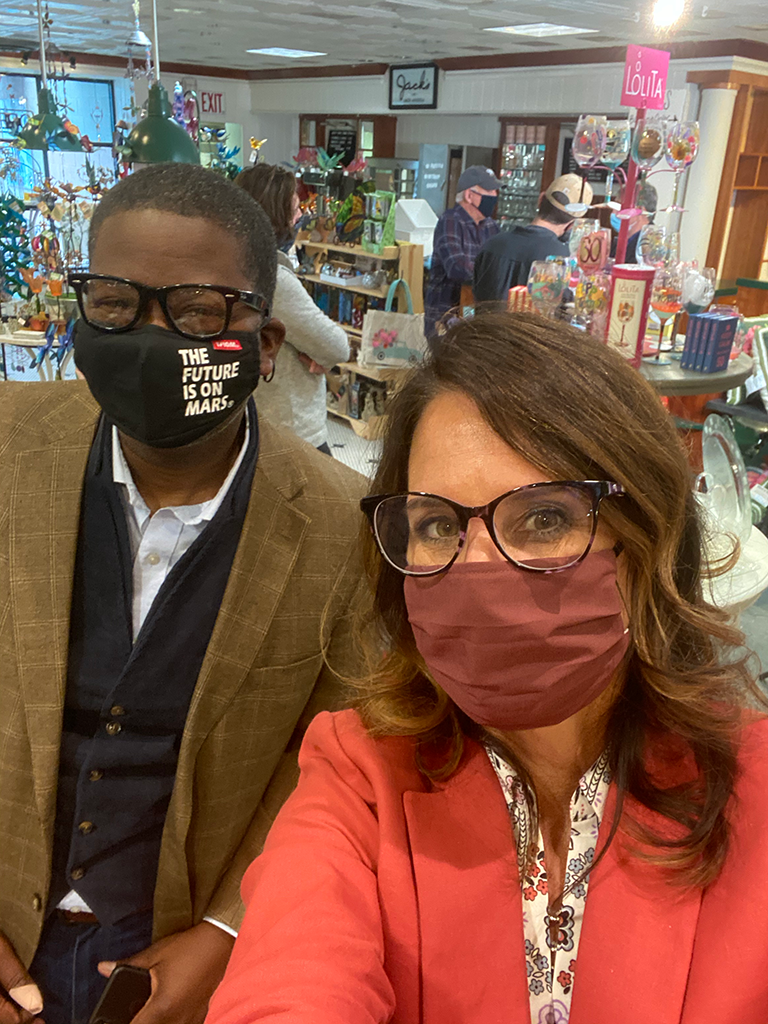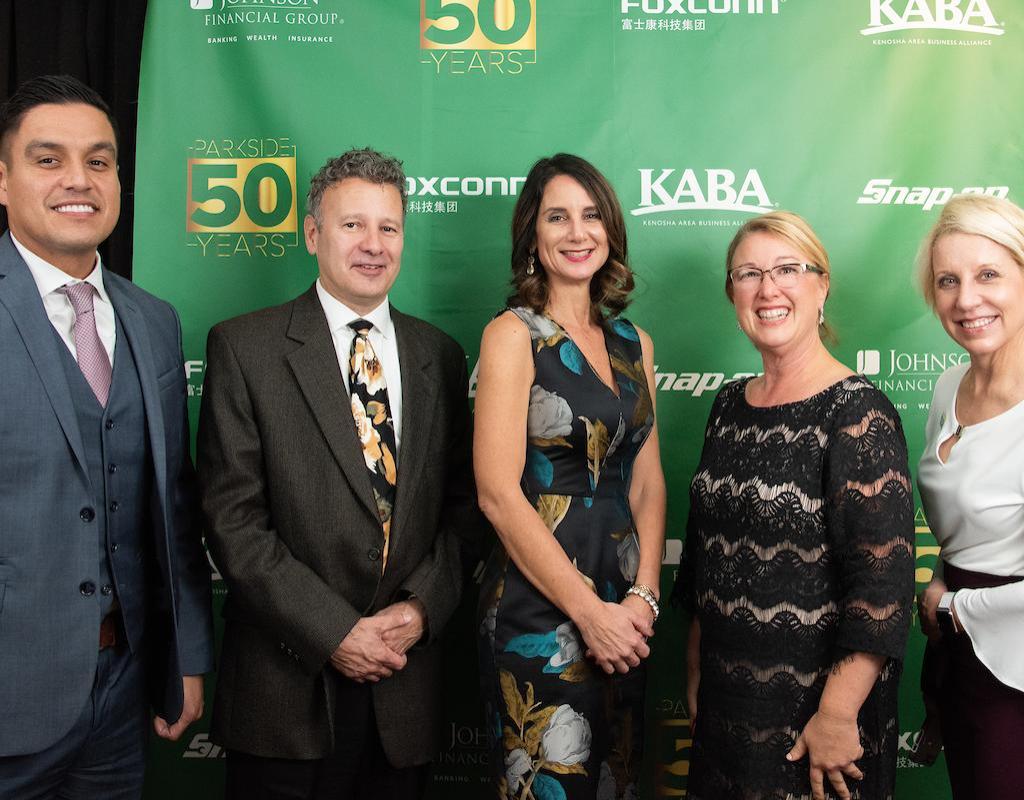UW-Parkside Profile: University Support by Kimberly Kane, President and CEO of Kane Communications Group and UW-Parkside Foundation Board Member
SOMERS, Wis. - Kane Communications Group is a results-driven public relations and marketing firm with staff in Milwaukee, Phoenix, and Geneva, Switzerland. As a company, their clients come to them with issues and problems and Kane Communications brings results driven outcomes. On top of this, President and CEO Kimberly Kane also looks to solve problems she sees in her community. This past December, Kimberly and her team named three organizations for their friends and partners to have the opportunity to give back to in their local community. UW-Parkside was one of those organizations to receive the generosity from Kane Communications Group.
A message Kimberly is focused on in 2021 is gratitude. She mentioned that the past 12 months have been extremely difficult for so many. During tough times, it’s easy to lose sight of the positive. Gratitude can be a powerful engine that pulls you forward by recognizing the good and often inspiring things that others do. Kimberly is a great leader in our community and is inspiring others to become leaders in their own unique way. We are grateful to have Kimberly as a member of the UW-Parkside Foundation Board and a community change agent. Follow along below as Kimberly answers some questions and gives us insight for what is to come for Kane Communications Group in 2021.
QUESTIONS
1. As a woman-owned corporation, why did you feel it was important to use your platform to give back to UW-Parkside?
First, I’m constantly impressed with the university’s work to bring its mission to life, especially with an emphasis on creating an environment where diverse and first- generation college students can thrive. I don’t shy away from championing amazing people and organizations and as a business owner, I wanted to use one of our platforms to champion UW-Parkside. We can all benefit from knowing more about how you’re changing the future for so many students and how this makes our communities and our businesses stronger. I hope the awareness we help generate comes back to benefit Parkside so you can graduate more talented, young individuals.
2. Why is it important to you to provide financial support for first-generation college students to help them complete their college education?
I wish that nothing ever came between a young person and their ability to reach their potential. We know that a college degree opens doors, but so many don’t get a chance to walk through because they can’t afford to. As a member of the UW-Parkside Foundation board, we’ve learned about students who dropped out because they didn’t have the few hundred dollars they needed for books, they lost their transportation, or had to take on full time jobs to support their family. We all benefit when those around us reach their full potential, so helping young people or adults returning to college get those degrees is important.
So, this is one part of our motivation to help. Another is a problem that Andreas Schleicher, Director, Directorate for Education and Skills, of the Organization for Economic Co-operation and Development (OECD) pointed out in 2012 when he wrote, “Skills have become the global currency of 21st century economies.” Even before the pandemic, disruptive new technologies, climate change, demographic changes and new ways of working were transforming industries and business models, altering the skills employers need and shortening the shelf-life of people’s skill sets. According to research conducted by the World Economic Forum (WEF), “All jobs may require very different skill sets just a few years from now as the ecosystems within which they operate change.” WEF expects 42% of skills requirements to change by 2022 alone. Skills have become the currency of the labor market and a prerequisite for business competitiveness and growth.
We’ve all heard about the skills gap. This gap was painfully revealed by this pandemic’s disproportionate impact on our communities of color and our low-income communities. Making college possible for more young individuals is one important way to close that skills gap and enrich the futures of our young.
3. What has your relationship been with UW-Parkside in the past and how can we grow that relationship in 2021?
I’m honored to serve as a member of the UW-Parkside Foundation Board of Directors and I have contributed financially to the organization for a number of years. I’d be happy to explore ways to grow our relationship in 2021. One way may be through the internship program we have for college students at Kane.
4. As we look at the problems in our country, how does Kane Communications look to answer those questions moving forward and how will you put plans to action?
I often find inspiration in Margaret Mead’s quote, “Never doubt that a small group of thoughtful, committed citizens can change the world; indeed, it's the only thing that ever has.”
My team has put a lot of thought into how, even as a small company, we can impact positive change beyond what we do as a business. I wrote about the steps we’re taking in a recent article for Kane’s website about leading during times of crisis. This is not a time to just hunker down, it’s a time we all have to ask tough questions and identify what we can do differently, including how our businesses can achieve results beyond traditional business metrics - supplier diversity, employee well-being, shared value in our communities, etc.
At Kane, finding diverse talent to join our small business is a priority, but it isn't always easy. So, in 2019, we began to focus on building a long-term strategy - not just for our firm, but for our industry. Kane brought together a group of local and global stakeholders to kick-start a process in Milwaukee to create youth and registered apprenticeship programs that will build a pathway for more individuals in our community to enter careers in marketing and communications.
According to a report just published by the United Nations Global Compact, progress is too slow globally towards reducing inequalities and increasing gender equity. Business, in particular, needs to do more. In a 2019 report by US-based Jobs for the Future (JFF), businesses interviewed found that apprenticeships increase equity and diversity in the workplace. This finding is highlighted in numerous studies and initiatives by the US Department of Labor, the International Labor Organization (ILO), the Organization for Economic Cooperation and Development (OECD), and many other US-based and global organizations, think-tanks, and businesses.
Small businesses can do more than many realize, we are the job creators and the engine of the nation’s economy.
Featured below is Kimberly and some of her team members. For more about Kimberly and the Kane Communications Group, please visit kanecommgroup.com.



